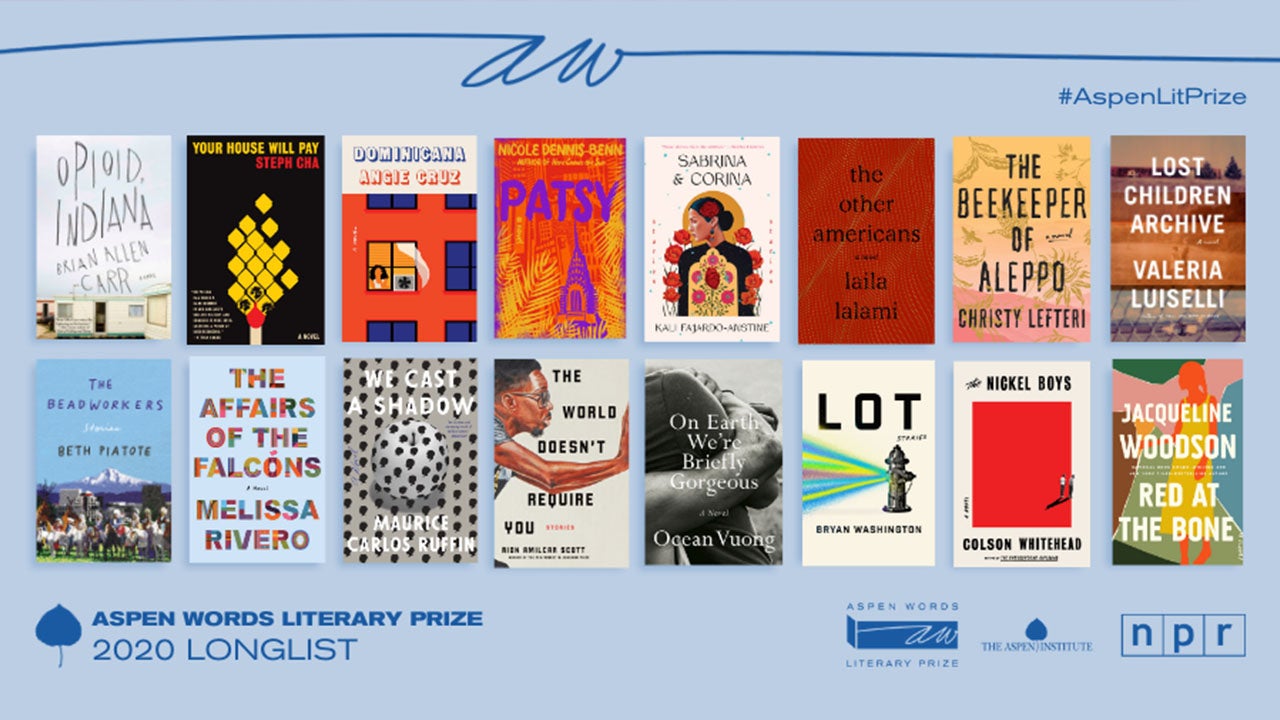On April 16, Aspen Words will confer the third annual Aspen Words Literary Prize, a $35,000 award recognizing a work of fiction that addresses a vital social issue. Sixteen nominees are still in the running, and the diverse list includes 12 novels and four short story collections covering a variety of critical issues and published by an array of presses. While the jury works on narrowing down this list to five finalists (to be announced February 19) and a winner, Aspen Words chatted with the nominees about their work, how they view their role as a writer in the cultural and political moment, and the best piece of writing advice they’ve received. You can find the series of conversations here.

Angie Cruz’s novel Dominicana follows Ana, a young woman who is married off to an older man in order to escape the political turmoil of the Dominican Republic. Away from her family and on her own in America, Ana is forced to choose between her duty to her family and her own happiness. Asking what the price of freedom is in America, Dominicana explores issues of race, immigration, and gender. Cruz is also the author of the novels Soledad and Let It Rain Coffee.
How do you view your role as a writer in this cultural and political moment, and why is the time right for your book?
I think everyone — especially writers because of the way literature can open our hearts to new territories we might otherwise resist — should actively be doing all we can with our work and our platforms to slow down, to raise awareness, to inspire action against the multiple mechanisms at work responsible for the displacement of people all over the earth, the speed of wildlife extinctions, and the constant peril women face. I do believe this is the right moment for Dominicana because many women, like my protagonist Ana, are facing impossible and challenging situations. Even if these issues are not new, with the emergence of movements like #metoo that offer space and courage for women to speak truths that are often silenced, my book was published at a moment when it could be more readily received and hopefully assist in these difficult but necessary conversations. Audre Lorde said it best: “My silences had not protected me. Your silence will not protect you. But for every real word spoken, for every attempt I had ever made to speak those truths for which I am still seeking, I had made contact with other women while we examined the words to fit a world in which we all believed, bridging our differences.”
Which other author deserves this award and why?
I love many books on this list and they are all deserving! So many of the writers on this list feel to me like literary siblings, especially Jacqueline Woodson, Kali Fajardo-Anstine, Melissa Rivero, Valeria Luiselli, Laila Lalami, and Nicole Dennis-Benn. I hope the award goes to the writer who needs the award the most to keep doing the work they are doing. Or that the award is split among us all! Maybe 2020 can be the year where awards are won collectively! As writers we know that the more of us out there telling these kinds of stories, the more possibility there will be for us to be heard, to make social change, and for us to innovate as artists.
What is the core tenet of your book’s philosophy?
Women are resilient.
If you weren’t a writer, what would you be?
I would study alternative medicines and healing.
What’s the best piece of advice you’ve received on writing fiction?
“Write into what you don’t know,” via Paule Marshall — who was quoting Grace Paley.


